Clinical Intelligence for Community Health Workers
In partnership with Integrate Health

Population covered


Impact metrics
CHWs trained to use clinical intelligence technology

children/newborns encounters
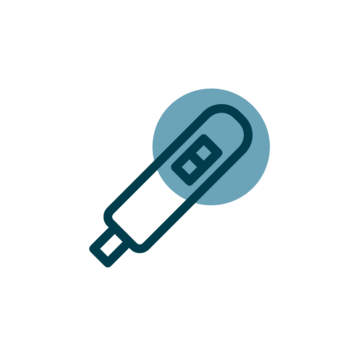
pregnancy tests administered
The challenge
In Togo, there are 0.1 physicians per 1,000 people (World Bank, 2019). To address health provider shortages, Integrate Health uses an integrated primary healthcare approach that delivers improved health services while strengthening the national healthcare system. CHWs play an integral role in decreasing inequities in access to quality care. In addition, 15,000 children under age five and 810 women die each day from preventable causes. In Togo, one in 15 children die before their fifth birthday and the maternal mortality rate is 14 times higher than in high-income countries. To address this shortage, Integrate Health integrates professional Community Health Workers with improved care in public health centers. This approach creates a patient-centered health system that is accountable to the community and dramatically reduces mortality in severely resource-limited settings.
Community Health Worker Kossia Makouya uses the image box to show post-partum danger signs
The partnership
Community Health Worker Célestine Assabo from Pangouda during a consultation
Integrate Health partnered with THINKMD in 2020 to launch the use of the clinical intelligence assessment tool to assist CHWs in conducting their patient consultations. Digital clinical assessment tools, like THINKMD, has helped CHWs transitioning from paper forms to the digital world while helping them inform their decision-making process. Providing treatment and carrying out follow ups has been easier with a tool guiding them through consultations. CHWs are able to better assess and diagnose their patients. THINKMD has also enabled rapid access to data by the MEQI team, allowing for quick response to critical cases.
What the technology looks like
The application guides CHWs through a series of questions about the patient’s health and supports CHWs to diagnose, treat, and refer patients. In addition, the smartphone application stores all consultation data and syncs with the Integrate Health server, eliminating the need for CHWs to carry large binders and registers and fill out paper forms.
The application is available on mobile phone or tablet in English and French powered by clinical intelligence technology, which enables CHWs to perform accurate clinical assessments for children under 5, pregnant women and postpartum women. These recommendations for action and treatment are consistent with WHO IMCI guidelines.
Technology users generate real-time, geo-tagged data with each assessment and follow-up, generating a useful data about the health of patients. Aggregated data enables epidemiologic and outbreak surveillance while disaggregated data informs the monitoring and evaluation process.
The results
Community Health Worker Afi Kpaba on a post-natal follow-up visit
Preliminary results show an overwhelmingly positive perception of the THINKMD tool, from both CHWs and patients.
- Improved delivery of care (faster, more effective, more accurate)
- Increased trust and understanding among community (e.g., patients take referrals more seriously)
- Reduced CHW workload
- Increased CHW confidence
There are implementation challenges that need to be addressed including:
- Technical problems (charging, device errors)
- Discrepancies with clinical training and tool’s recommendations
- Data & reporting issues (inability to note medication stock outs; “work arounds” implemented meaning data reported is inaccurate)
- Feeling of “tracking” of CHWs could erode organizational trust
“We enter all the information while treating the children with the app, you can no longer forget questions or advice to give to patients.”
– CHW, Togo
“When the CHW leaves her house and enters a household, she takes the app to work, it’s like she has power.”
– CHW, Togo
